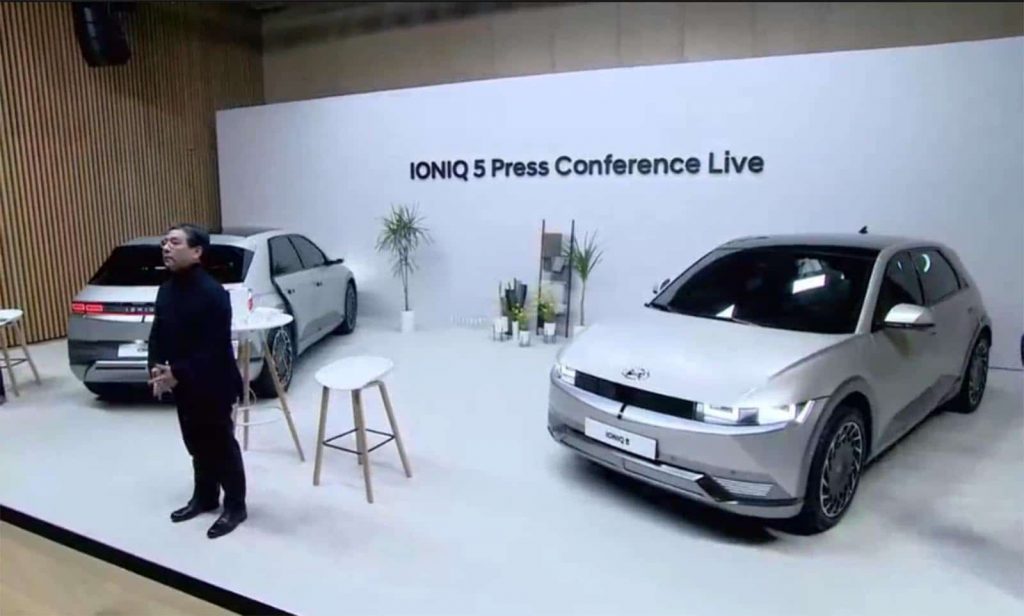South Korea’s Hyundai Motor Group is putting an electrified stake in the ground in the U.S., announcing today it plans to invest $7.4 billion here by 2025 to advance its electrification efforts.
The parent company of Hyundai Motor America and Kia Motor Manufacturing expects to use the funds to produce future battery-electric vehicles, improve production facilities to build those vehicles and invest in smart mobility solutions.

Mobility solutions will include things like robotics, urban air mobility (i.e. flying taxis and such) as well as autonomous driving technology. Its investment also includes further development of the “hydrogen ecosystem,” which means fuel-cell vehicles as well as the infrastructure needed to support them.
“This investment demonstrates our deep commitment to the U.S. market, our dealers and customers,” said José Muñoz, Hyundai Motor Company’s Global chief operating officer and president and CEO of Hyundai Motor North America.
“Hyundai will lead the future of mobility in the United States and around the world. Our efforts are proof positive that Hyundai will continue to pursue excellence in our current and future product line-up.”
Where’s the money going?
First, it helps to know how the company will be structured. After being elevated to the top spot last October, Hyundai’s Chairman Euisun Chung said the company would focus on technology. He broke it down into three segments: robotics accounting for 20% of Hyundai’s future business, urban air mobility accounting for 30%, and traditional auto manufacturing at 50 percent.

To that end, the company purchased an 80% stake in Boston Dynamics from SoftBank Group Corp. for $1.1 billion. The robotics business gives Hyundai a hedge against the vagaries of the automotive industry.
So in the case of the automotive end, or 50%, the company’s three auto brands — Hyundai, Genesis and Kia — will expand their manufacturing footprint to match the demand for EVs, especially Hyundai, which will have a suite of U.S.-built EVs for consumers starting in 2022. Kia’s line-up will grow in the coming years as well.
Hyundai’s Montgomery, Alabama plant is currently capable of producing about 400,000 vehicles annually, while the Kia plant in West Point, Georgia can put out about 340,000 units. Both brands have begun rolling out new electric vehicles.
Hyundai showed off the Ioniq 5, which is the first offering from its all battery-electric sub-brand. Meanwhile, Kia rolled out the new EV6.
Not just BEVs

The company plans to “expand the U.S. hydrogen ecosystem” as part of its investment strategy. Since it sells a couple of fuel-cell powered vehicles, the Tucson and Nexo, ensuring there are more places to refuel them is a sage strategy.
Officials said it plans to work in concert with the U.S. government as well as other business partners to do this. It reminded it already has an agreement in place with the U.S. Department of Energy “to cooperate in hydrogen fuel cell technology innovation and global expansion. This included the installation of a hydrogen refueling station and providing Nexo SUVs.”
Hyundai plans to participate on demonstration project to commercialize fuel-cell electric trucks. It’s also working with other companies to conduct a hydrogen refueling demonstration project for those trucks. It will also provide logistics between port and inland warehouses by utilizing fuel cell electric trucks.
Hyundai have previously made an agreement with Cummins Inc., an U.S. based company which specializes in advanced powertrain, to accelerate deployment of fuel cell electric systems in the U.S. market.

